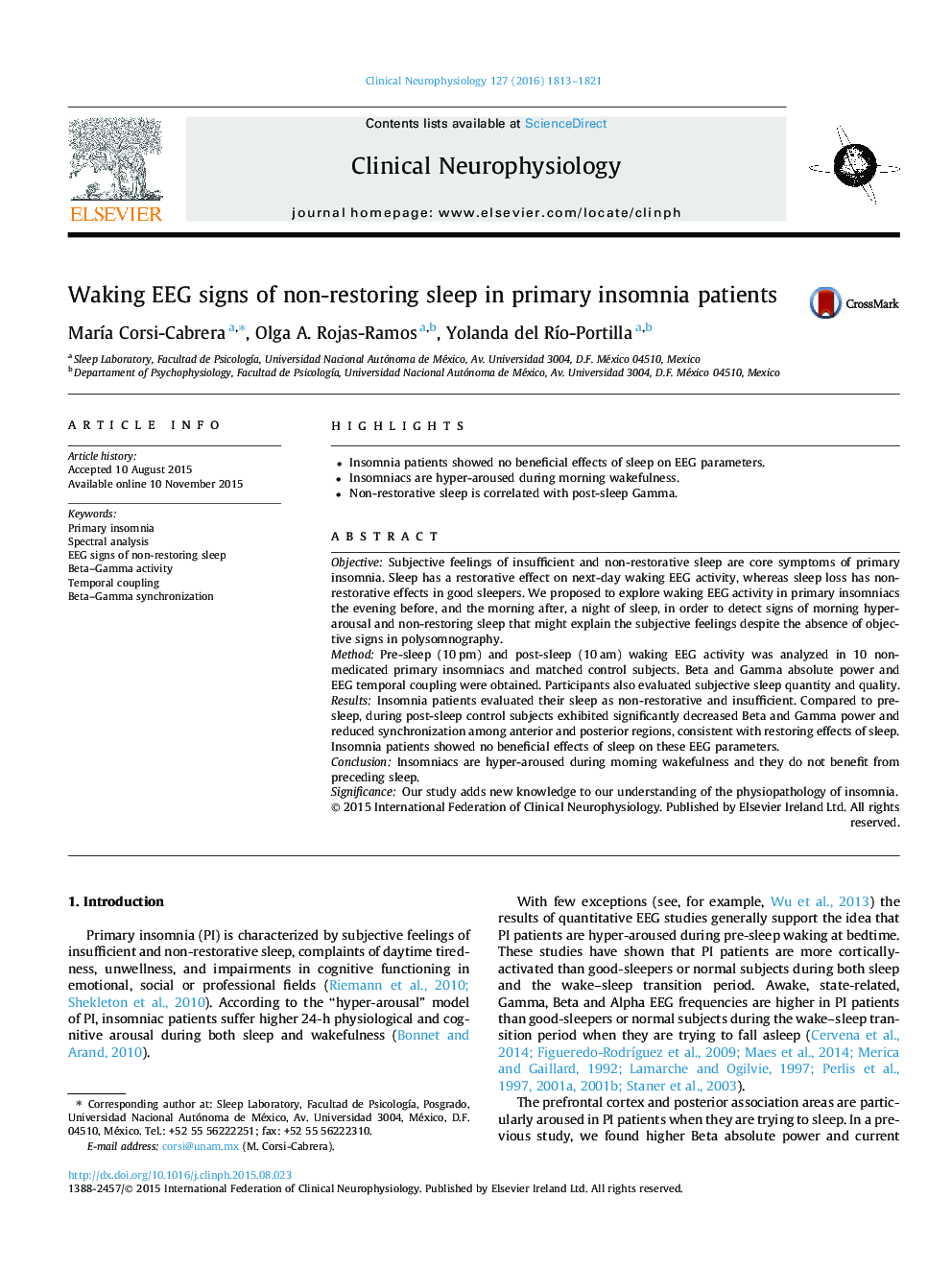| Article ID | Journal | Published Year | Pages | File Type |
|---|---|---|---|---|
| 3042894 | Clinical Neurophysiology | 2016 | 9 Pages |
•Insomnia patients showed no beneficial effects of sleep on EEG parameters.•Insomniacs are hyper-aroused during morning wakefulness.•Non-restorative sleep is correlated with post-sleep Gamma.
ObjectiveSubjective feelings of insufficient and non-restorative sleep are core symptoms of primary insomnia. Sleep has a restorative effect on next-day waking EEG activity, whereas sleep loss has non-restorative effects in good sleepers. We proposed to explore waking EEG activity in primary insomniacs the evening before, and the morning after, a night of sleep, in order to detect signs of morning hyper-arousal and non-restoring sleep that might explain the subjective feelings despite the absence of objective signs in polysomnography.MethodPre-sleep (10 pm) and post-sleep (10 am) waking EEG activity was analyzed in 10 non-medicated primary insomniacs and matched control subjects. Beta and Gamma absolute power and EEG temporal coupling were obtained. Participants also evaluated subjective sleep quantity and quality.ResultsInsomnia patients evaluated their sleep as non-restorative and insufficient. Compared to pre-sleep, during post-sleep control subjects exhibited significantly decreased Beta and Gamma power and reduced synchronization among anterior and posterior regions, consistent with restoring effects of sleep. Insomnia patients showed no beneficial effects of sleep on these EEG parameters.ConclusionInsomniacs are hyper-aroused during morning wakefulness and they do not benefit from preceding sleep.SignificanceOur study adds new knowledge to our understanding of the physiopathology of insomnia.
